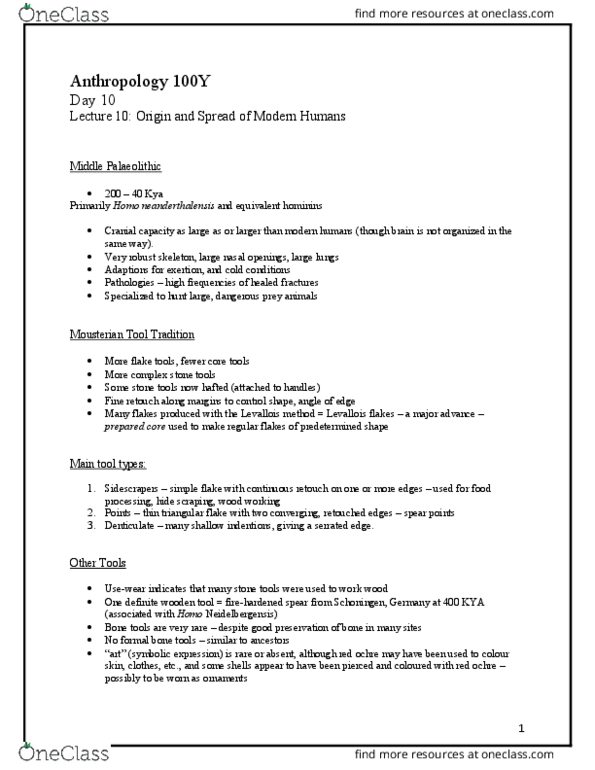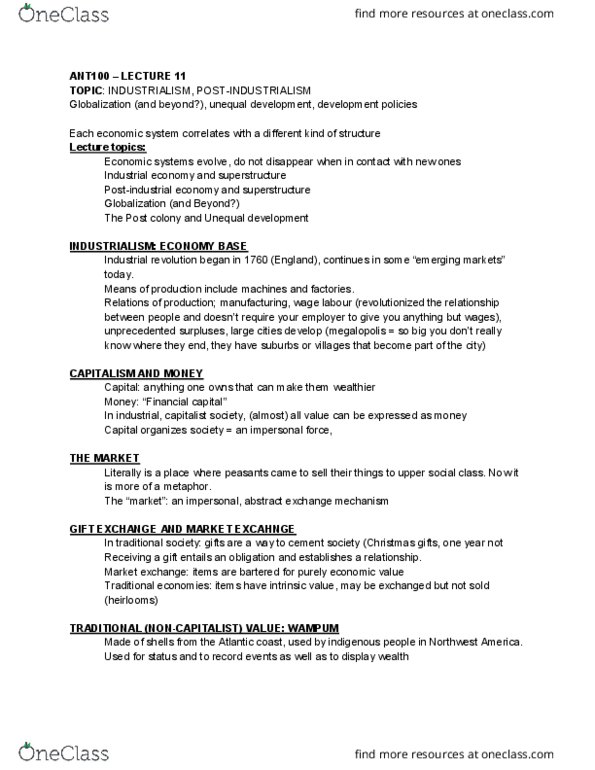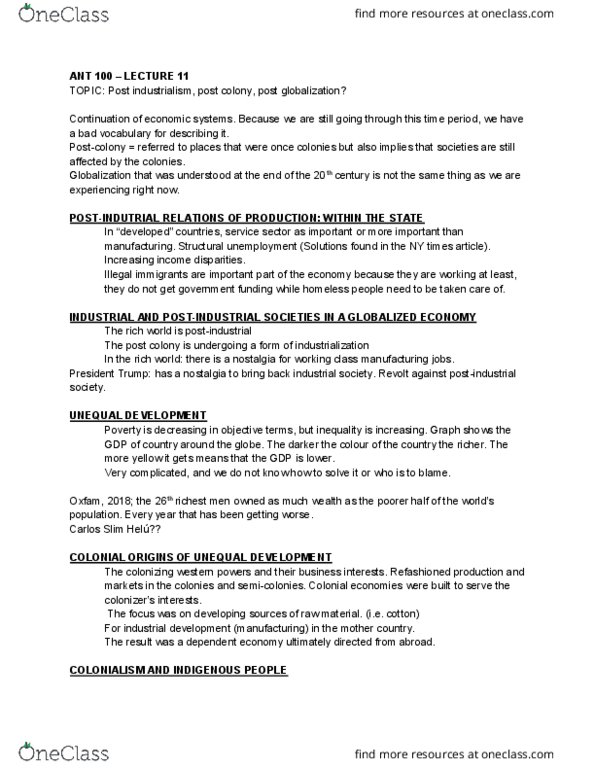ANT100Y1 Lecture Notes - Lecture 11: Northeast Megalopolis, Wage Labour, Industrial Revolution
ANT100Y1 verified notes
11/13View all
Document Summary
Each economic system correlates with a different kind of structure. Economic systems evolve, do not disappear when in contact with new ones. Industrial revolution began in 1760 (england), continues in some emerging markets today. Capital: anything one owns that can make them wealthier. In industrial, capitalist society, (almost) all value can be expressed as money. Literally is a place where peasants came to sell their things to upper social class. In traditional society: gifts are a way to cement society (christmas gifts, one year not. Receiving a gift entails an obligation and establishes a relationship. Market exchange: items are bartered for purely economic value. Traditional economies: items have intrinsic value, may be exchanged but not sold (heirlooms) Made of shells from the atlantic coast, used by indigenous people in northwest america. Used for status and to record events as well as to display wealth. Nobility: an estate (prince, princesses or lesser nobility)




